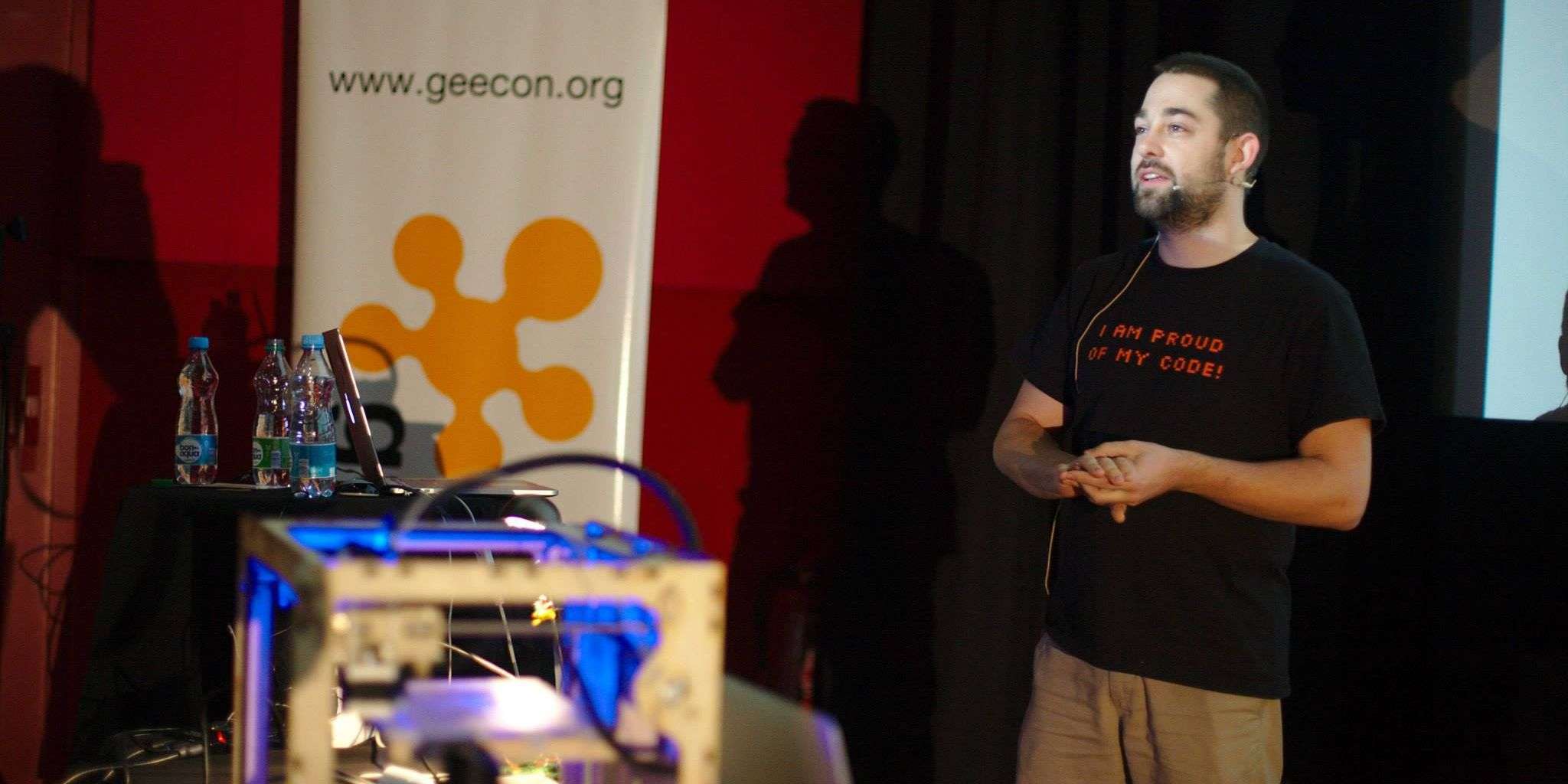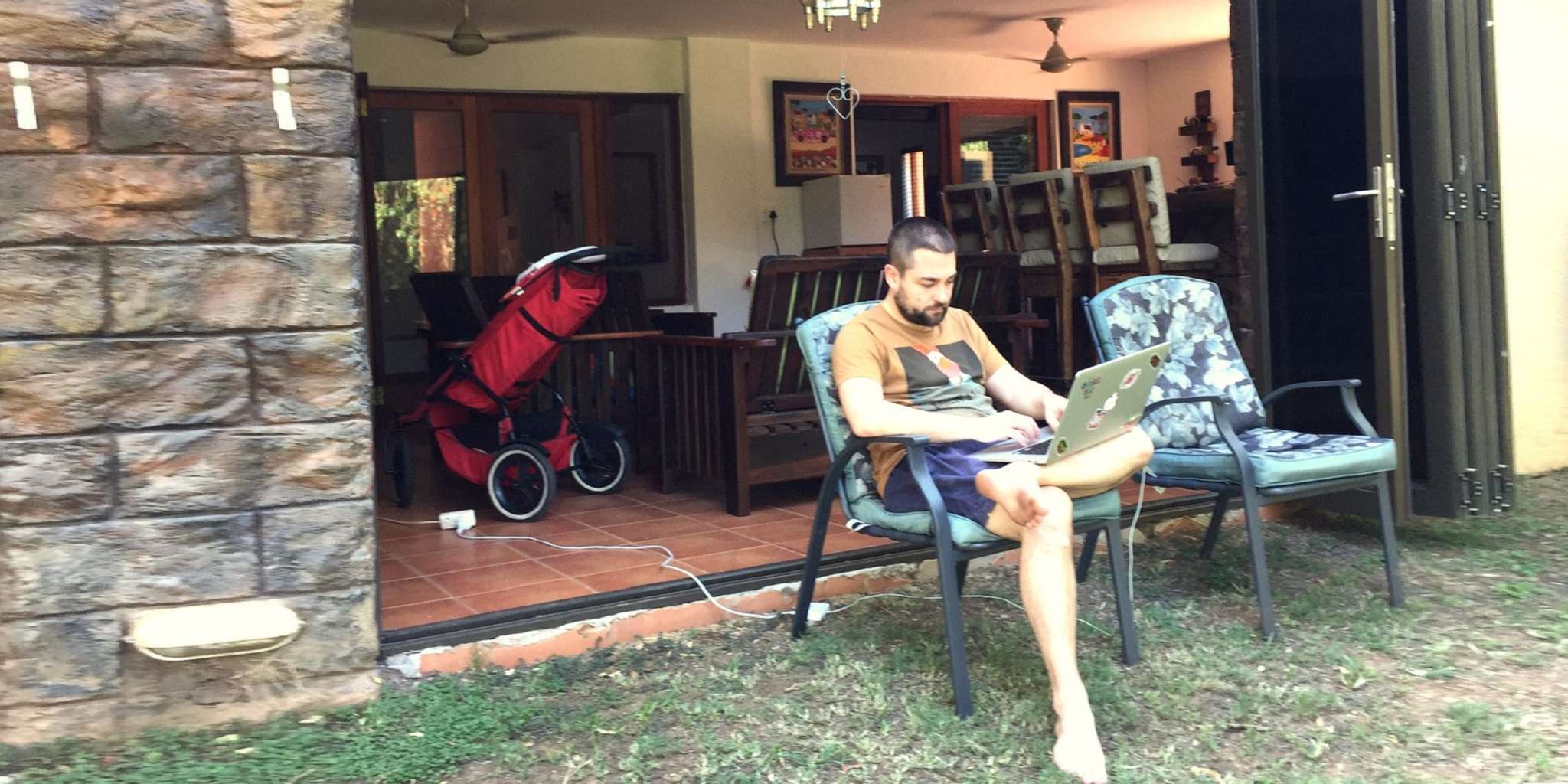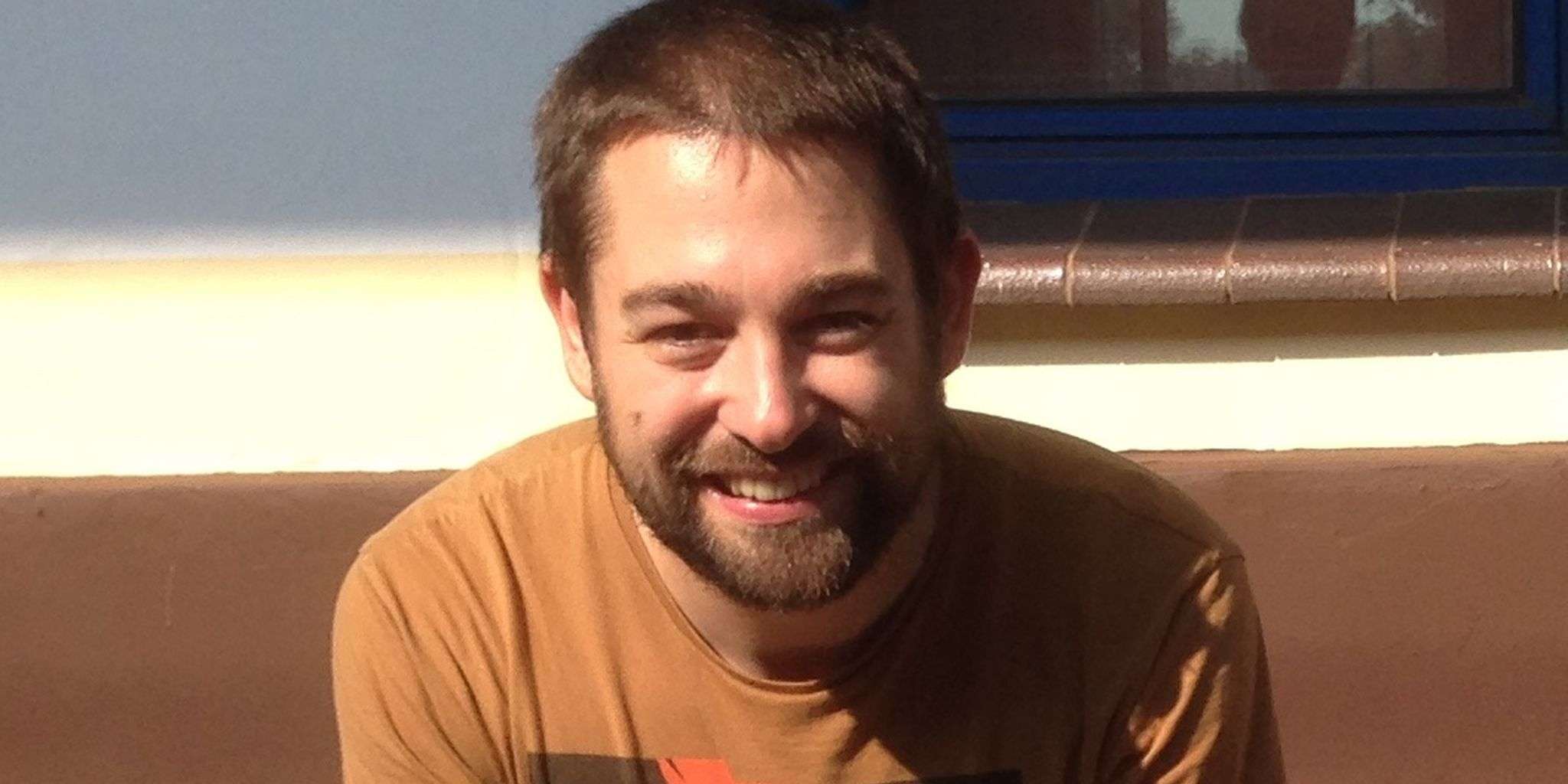Interview with Tomasz Szymanski
Michael Sliwinski: Your company - SoftwareMill, like Nozbe and Productive! Magazine, is a distributed team, and so, we are going to talk about productivity without having an office. To give you an idea of the advantages of working remotely, let me tell you that Tomasz is chilling out in South Africa right now. :)
Tomasz Szymański: That’s correct. And it is not a typical holiday.
Michael: Tell us something more about your team.
Tomasz: As you said, we’re a 100% remote company. We have developers from all over the country and we do not have any offices.
Michael: Sometimes, at a conference or a meeting, people ask me, “Where are you based?” Then, I say, “Technically, the core team is in Poland, but we don’t actually have an office. We all work from home – remotely.” “Ah, right … so where are you based?” :)
Tomasz: Exactly. We also get that.
Michael: And how do you explain that to people?
Tomasz: Well, I tell them that everyone has a computer at home. And if you’re doing a software engineering job, you don’t really need anything else. By saving money on the office space, we can buy everyone really nice laptops so it is a win-win situation.
Michael: I think you went even further with your company – you fired all the managers, didn’t you?
Tomasz: Well, at some point we were more of a traditional company with a board of directors consisting of four co-owners who were running everything. The company was growing, and we still wanted to do software engineering and to write code. At that point, we decided that instead of hiring a manager and paying him extra money, we’ll just tell everyone that they can all rule. Now, people often ask us how it works. We like to say, “It actually hasn’t been working for the last year.” ;-)
Michael: Working remotely is really efficient for our companies. And we can prove that it works by the company’s revenue and condition. We do like how it works! As you all can see, this company model isn’t fixed – it may have its variations. I guess the thing with no managers may work for some companies, but not for all. You have many customers and thus, many products. You need to be more flexible. With Nozbe, there is just one product, so there needs to be a specific product vision and some structure within it so people know what they need to and can do. And they can do almost everything, so I’m being a little bit overwhelmed with the fact that big stuff is happening without my knowledge …
Tomasz: Exactly.
Michael: People know what they can do and they just do it. They don’t ask me for permission – they just do stuff. So I think I’m somewhere between the traditional structure where there is a boss and his vision and your “anarchy-like” idea.
Tomasz: Actually, not so long ago, we had a similar conversation in our company. We said that the structure that we’ve built is not perfect for product-type companies. In that case, you need someone to be a Steve Jobs who has a vision and can lead the way. In our case though, since we’re more the outsourcing company with many clients, every project for a client is a small, separate company.
Michael: That’s an interesting attitude.
Tomasz: We want each team that is working for a client to take responsibility for all the issues: financial stuff, agreements, customer relations, etc. It wouldn’t make sense to have one person managing all these projects. When one of the developer teams needs to buy iPads for everyone to do the job well, why force them to ask the board for permission. They know best what they need for their project, right?
Michael: Right. They take the responsibility, they decide.
Tomasz: We tried with a product CodeBrag at some point, and it was more like you’re saying. We built a kind of sub-company within our company. This team was responsible for the product – they had a vision and a strategy. And they were leading it their own way. It wasn’t as if the whole company would drive the product.

Michael: I remember having a conversation with my customer support team. They started coming to me with questions like, “Look, there is this customer. He’s been having some problems with our app. Maybe we should give him an additional month for free? Could I do it?” I told them not to ask me these kind of questions any more. They know best what a customer expects and what that person needs. We agreed to set a margin (we stole it from Tim Ferris’ book). They have that much money to solve a problem with the customer. If this much money solves the problem, just solve the problem.“ :)
Tomasz: I think the biggest problem with having those flat structures (they can be more or less flat, obviously) is not really about the owners giving the power to the people but the people using the power. Employees are used to being told what to do. The company owner or the CEO has to work a lot with people to encourage them to actually use that power and take responsibility.
Michael: That’s a very good point. You have to really work with the people to convince them that you mean it. "You solve it yourself. You don’t ask for permission.”
Tomasz: And then you get, “So you’re saying we can buy laptops if we want? Okay, great! So can I buy this one?” No, that’s not the right question … :)
Michael: Team members need to be taught that they have the power. They come from different backgrounds, from different companies … And some companies are very traditional, so no wonder they ask about everything.
Tomasz: Very often when someone decides to move from a corporation to a flat-structured company – which, let’s be honest, usually means a lower salary – is because he or she was just fed up with the corporation and wants to change it to something more human. These guys usually are not that hard to convince to start using the power, because they’ve been craving for that for a couple of years now.
Michael: However there are good things we can learn from corporations, too. There is one developer who came to Nozbe from a big corporation. He told us to start writing down things. Thanks to him we now have a company wiki where we write down all the information. Every new employee or team member from different departments might easily learn how certain things work. There are certain procedures that are the outcome of our experiences so far. There are automated and optimized processes that work and are worth following. It ensures clarity. People don’t have to ask questions. “How do I get this?” “How do I get that?” Honestly, very often I would catch myself giving different answers to the same question. :)
Tomasz: We have a similar approach. We have a wiki. We put all the rules we have in the company. There’s a starter page for everyone to read through. And it just describes all the basics and how we are running. That’s a good thing to have. And when there are things we just can’t agree upon, we vote. And the result becomes a law. And there’s a special place for such laws in our wiki.
Michael: That’s a great tip. Tell us some more about practical aspects of running a company like this.
Tomasz: So, for example we have a “Chrum” meeting (which is the derivative from a Polish word “chrum” meaning “oink” – the sound a pig makes) everyday at 10:00 a.m. This meeting is to keep the company together. Basically, we ask each other just two questions on that meeting. One is “How are you today?” If something’s not going right, then it’s the best moment to talk about it. Or if everything is superb, then you can also say that. But we’re working in Poland, remember, so …
Michael: Yes, we are total complainers. Apparently complaining is our shared national passion. :)
Tomasz: And then the second question is equally general but it changes everyday: “What was the last book you’ve read?” or “What is your motivation for sports?” Thanks to that every day you get to know a little more about the people you work with. Those meetings take place on TeamSpeak – the software originally created for gamers that has a PushToTalk functionality (I’ll talk about this a little bit later.) And then we use Big Blue Button to have everyone on camera. We chose it because we ran out of the 10 quota that I think we get on Google Hangouts. And Big Blue Button can support as many as you want and as much Internet pipe as you have.
Michael: Got it.
Tomasz: I am not sure if you are going to agree with me on this one, but I get the impression that people who start to work remotely expect to be given something to achieve and then, after a week or two, have it solved. I don’t think it can work very well in such a big company like ours. So what we do is actually try to simulate office work. Thus, we have “rooms” dedicated for each project in TeamSpeak app. When working on a specific project you might go into that “room” and talk to the other people who are “present” there. You press some combination of keys on your keyboard to start talking, so that everyone hears you. It’s like walkie-talkie.
Before, we used Skype. But there, every time you need or you want to call someone, you have to somehow arrange it. I’ll call you now, then you call and it doesn’t work because something is wrong with your camera or with your microphone or connection. In TeamSpeak, everything is set up and all one needs is just to start talking. So we have a very quick conversation whenever it is needed. There’s also a mute button – and this is only possible when working remotely! When you really want to focus and you don’t want to listen to the other guys who just started talking about politics (and they continue for another three hours), you can mute them. And you focus on your job. So that’s how we work.
Michael: We had TeamSpeak in the past, but it wasn’t that successful. Maybe because we didn’t have our own TeamSpeak server? Do you have one?
Tomasz: Yes, it costs pennies, really.

Michael: Okay. We have to check it out. Now, let’s move to South Africa. :) Why are you there?
Tomasz: It’s beautiful here. :)
Michael: So you’re escaping from the beautiful winter in Poland?
Tomasz: Yes, exactly. I worked here for one of the clients and stayed with my whole family for six months two years ago. And after coming back home, the only thing we thought about is that we wanted to go back one day. And now we got the chance to come here for two months.
Michael: When working remotely, people can actually work from anywhere. And this is exactly my case. And, as you can see – Tomasz couldn’t reject the opportunity either. There is one person in my company who had always wanted to live in France. Before, she couldn’t because she had to go to work in Warsaw (Poland). And then when she got a job in my company she said, “You know, now if you really don’t care where I live, I’ll just go to France.” And so she did. This is a fantastic thing that companies that work remotely can offer: a lot better quality of life.
Tomasz: Yeah, there are many other advantages.
Michael: Of course. For example, some people don’t want to move to big, overcrowded cities. Even though they would be able to quickly move up on a career ladder in a big city, they prefer to stay in their hometowns, villages, and with their families. A distributed team is something ideal for them. There are great people like this on the Nozbe team. Thanks to our policy, they work on big projects, they are responsible for really important stuff, and they make good money, not having to move to a different place.
Tomasz: We also have two guys like that in our team. They both moved back to their hometowns soon after getting a job with us. They could. And they can work and live where they want. Other colleague of mine is passionate about gliding. He would go to the south of Poland for a month or two every year whenever the best winds are. He enjoys himself, and then he goes back to the city where he lives. Internet access is available almost everywhere.
Michael: Yeah, that’s the thing. You cannot offer this to your employees if you have a centralized office. Talking of centralization – I’d like to go back to what you’ve said about the absolute liberty your team enjoys when working on their projects. How does it work?
Tomasz: There’s nothing really in place. There are no rules of how the project should be run. Within projects, there is usually someone who’s a natural leader. And it’s not that he or she is elected or put in charge by the board. He or she might be the oldest on that project or maybe that person is just respected by the other team members for some reason. There’s also someone who’ll be the contact for the client. That is because clients also need that traditional glimpse of working that they’re used to. They will expect that there will be a person that they can talk to, discuss the finance or ask about new resources. But it’s nothing that we impose.
Michael: Do you coordinate it in any way?
Tomasz: The rule is that if you can solve a problem in your team, then you do it. Once you have problems that are unsolvable within the team, you ask someone for help or advice. And then, if you’re still not sure, you go on the company level. And then we might meet, we can have some serious talk about that and try to solve the problems that have emerged. We also have monthly meetings in person. I find it crucial for running a remote company, because people like seeing other people, and they like to remember we’re built of flesh and blood.
Michael: I don’t necessarily agree with that. We hire people via Skype, we fire people via Skype if necessary. We very often start working with people we haven’t seen before. Sometimes we send somebody who lives close to the candidate to meet in person, but very often it’s not even the case.
We organize week-long company meetings twice a year. We stay in a hotel. We get a conference room where we work during the day and then we do lots of other things in the afternoons and evenings: paintball, football, bowling, etc. Stuff to play, whatever. The idea is to meet, to connect and get motivated for the next half a year. We are also experimenting with meetings in smaller groups. Our customer support team had their meeting last week, for three days. We don’t have monthly meetings though. We are so far away from each other that it would just be a pain to organize every month.
Tomasz: Yeah. It’s just another approach. You don’t necessarily disagree with me – it’s the same technique, but implemented slightly differently. We don’t get to have everyone every time at our monthly meetings. As you said – it’s impossible to organize it so that it works for everybody. We have a bigger meeting like yours, once a year. Everyone comes with their families: wives, husbands, and kids.
Michael: Great. Thank you for sharing your best practices and the sunshine from South Africa with us. Working from home is really fantastic. We are both living proof. We’re 100% remote companies. We love it and we think it is just a cool way of running our business. Helping our employees to improve the quality of life is just the icing on the cake.
Watch the video interview with Tomasz:

